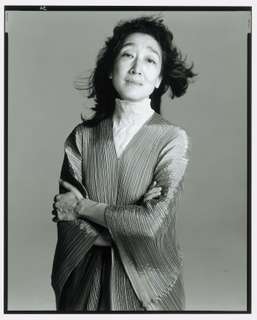|
Back
Muti Cracks the Whip New York
Avery Fisher Hall
04/15/2009 - & April 16, 17*, 18, 2009
Maurice Ravel: Piano Concerto
Franz Schubert: Symphony No. 9
Mitsuko Uchida (piano)
New York Philharmonic, Riccardo Muti (conductor)

Mitsuko Uchida (© Richard Avedon)
Full disclosure. I love Maurice Ravel’s music so much that it is somewhat irresponsible of me to review any individual performance. This difficulty is increased exponentially when the Piano Concerto in G is the subject because its second movement is, in my view, the most beautiful music of the twentieth century. The composer described its composition as “torture” but, as it turned out, of the loveliest kind. Based on the most affecting movement of the eighteenth century, the Adagio from Mozart’s Quintet for Clarinet and String Quartet, the opening quiet, extended piano solo that lasts for over two and one half minutes – after the rambunctious orchestral antics of the first movement Allegramente - never fails to amaze.
Audiophiles will maintain that the recording purported to feature Ravel at the piano, but actually employing Marguerite Long as the soloist, is the most significant in the literature, but I grew up with the Bernstein version, on which he perspicaciously included the Piano Concerto No. 2 of Dmitri Shostakovich with its very similar middle movement. Lenny may not have been a great pianist, but he certainly knew how to pick his spots. Fortuitously for my sense of objectivity, I have indeed heard some clunkers in the concert hall, most notably Helene Grimaud and the Philadelphia Orchestra at the Academy of Music back in 2000. At Avery Fisher Hall on Friday morning – yes, morning – Mitsuko Uchida took her turn with the New York Philharmonic.
She delivered a sparkling performance, ebullient, crystalline, infectiously spirited. Her traversal of the opening of the Adagio assai was tastefully understated. This pianist realizes that there is no magic in gilding the lily with rubato or furrowed facial expressions here, a common mistake of otherwise competent keyboardists at this particular juncture. Rather she let this gorgeous, thoughtful music speak for itself.
Riccardo Muti has a special knack with this often recalcitrant orchestra and their sound this day was remarkably disciplined. He utilized quite a small band for the Ravel accompaniment, but his intent was unclear. If one wanted to be charitable, one could say that he struck a logical balance between the classical and the jazzy, but I fear that what actually happened was that the leader had come to a definite decision, however his players’ inelegant execution left us all in doubt as to in which direction he was leaning.
Bucking current trends, Maestro fielded a very large ensemble for Schubert’s ”Great” C Major but tempered this anachronistic elephantiasis by reverting to his old strategy in Philadelphia, that is, burying the brass behind a giant wall of strings. With this sound firmly established, he called for and received very crisp and strongly articulated accents from his fiddlers that gave this splendid performance enjoyable propulsion. Seldom does the Phil sound this good overall. Their loss is Chicago’s gain.
Fred Kirshnit
|